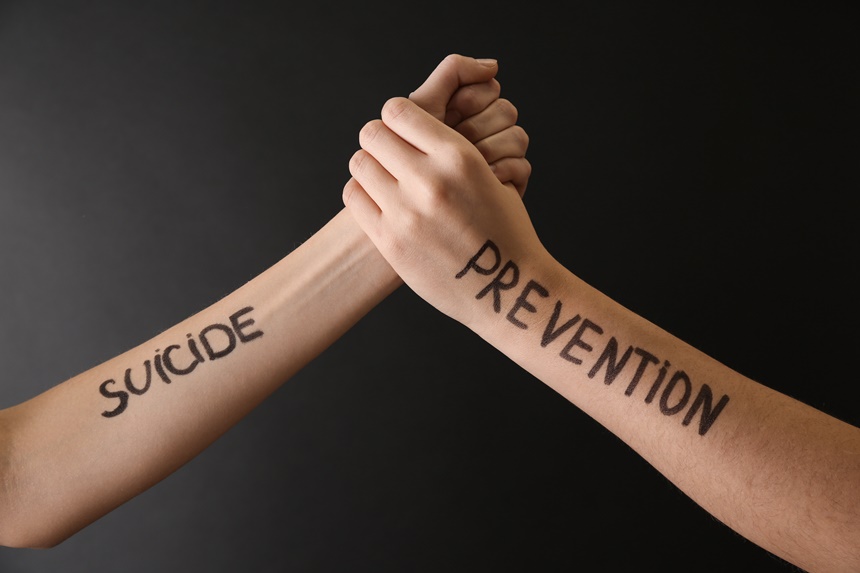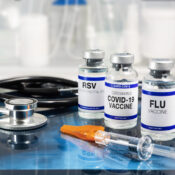“Your Health Checkup” is our online column by Dr. Douglas Zipes, an internationally acclaimed cardiologist, professor, author, inventor, and authority on pacing and electrophysiology. Dr. Zipes is also a contributor to The Saturday Evening Post print magazine. Subscribe to receive thoughtful articles, new fiction, health and wellness advice, and gems from our archive.
Order Dr. Zipes’ books, Ari’s Spoon, a new novel, as well as Bear’s Promise and Damn the Naysayers, A Doctor’s Memoir. Check out his website at dougzipes.com.
Suicide is a complex and important public health issue in the U.S. that requires comprehensive efforts to prevent. It is a leading cause of death, with nearly 50,000 suicide deaths in 2022 (about one death every 11 minutes), 2.6 percent more than 2021, which was 5 percent greater than 2020. While the rate appeared to decrease among 10–24-year-olds, suicides increased in those older than 24 years.
Multiple factors influence suicide rates, which are higher in those who have experienced violence, including child abuse, bullying, or sexual violence. Suicides are highest in non-Hispanic American Indian/Alaska Native people followed by non-Hispanic whites. Veterans, people who live in rural areas, workers in certain occupations like mining and construction, and young people who identify as lesbian, gay, or bisexual experience higher suicide rates. Depression, anxiety, bipolar disorder, and substance abuse can increase vulnerability to suicide, as can social isolation and loneliness. In contrast, family and community support and having easy access to healthcare can decrease suicidal thoughts and behaviors.
Suicide prevention requires a comprehensive public health approach. The Centers for Disease Control and Prevention developed the Suicide Prevention Resource for Action, which provides information on the best available evidence for suicide prevention. In addition, the hotline for suicide help has been changed from the cumbersome 1-800-273-8255 to 988. Counselors are available around the clock, seven days a week, to provide emotional support while reducing stress and guiding healthy decisions for anyone who needs to talk, even if they aren’t contemplating suicide.
After the phone number switch to 988, more people in crisis have been reached. Since July 2022, the Lifeline answered nearly 5 million calls, texts, or online chats, 2 million more than were answered in the prior year. The number of answered calls and chats increased by 46 percent and 141 percent, respectively, and answered texts rose by more than 1000 percent. The average answering speed also dropped, from longer than 2 minutes to 41 seconds. Other improvements include using specialized groups to answer calls, such as for veterans, members of American Indian and Alaska Native communities, Spanish speakers and other languages, services for hard-of-hearing and specialized services for LGBTQI+ youth and young adults.
One of the complaints among suicide counselors is that the 988 number is not widely known. Hence the reason for this week’s column. I was impressed by the response of Deyanira Caceres, Spanish Bilingual Program Coordinator at Didi Hirsch Mental Health Services, who talked about a recent caller. She said, “He called because he was about to attempt suicide. He was heartbroken, crying, devastated. And he felt that he couldn’t take the pressure of being a provider. By the end of the call, he thanked me and said that he wouldn’t be alive if it wasn’t for our services and resources.” (
The nationwide stress level appears to be at an all-time high, and many need emotional support more than at any other time. Remember the phone number, 988, and call whenever your emotional burden appears greater than you can handle. Help is just a phone call and seconds away.
Become a Saturday Evening Post member and enjoy unlimited access. Subscribe now




Comments
Not a shame to call when someone’s perceiving suicidal ideation. Those who call are better mentally healthy than those who don’t, because their calling evidences they still have power for health communication, a communication whose health nature is protected by law.
Suicidal ideation is quite common and may historically be a root of the evolving fight-flight defence system of the human (or living) species.
This easy hotline number is very important news to get the word out on, Dr, Zipes. There are many reasons why someone might feel compelled to ‘want out’, especially in these times. Others really don’t want to die, deep down, but don’t want to live either.
When every little bit of hope is gone, or seems to be from the caller, trained counselors will know what to say. Many, if not most of them have needed such help at one time or another, and can personally relate to what the caller’s going through, to keep them from going to the other side of life before their time. Hope is the most crucial element to get to a positive other side in THIS life.
It’s the foundation to calm the person down, getting them out of the state they’re in so they can be open to listening to solutions to turn things around. Knowing there’s always someone there to call that will answer the phone when they need it most, is vital in a such an important support system.